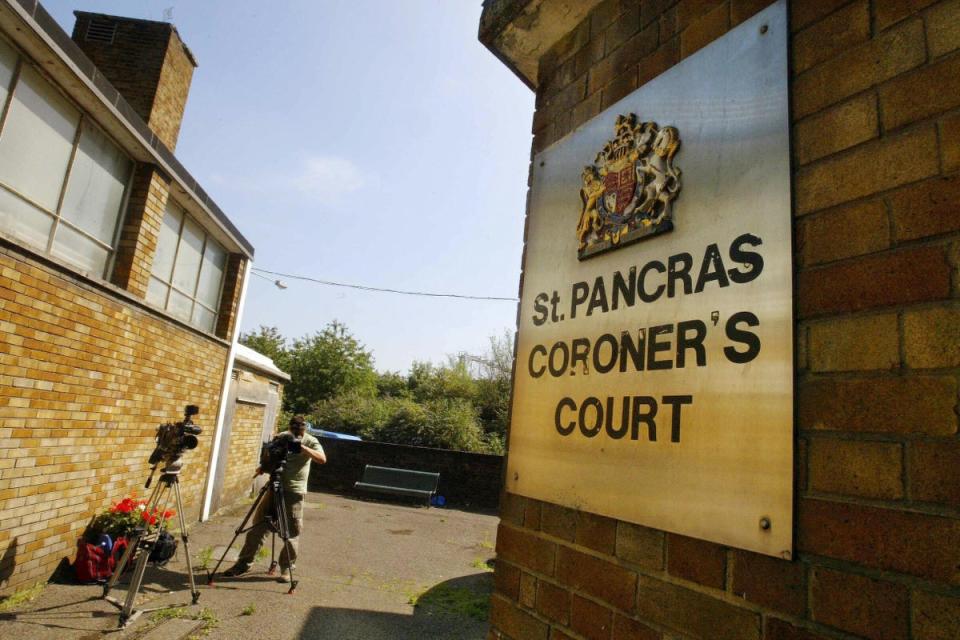Woman killed by herbal remedies she took to treat arthritis

A north London woman suffered liver failure and died after she was given herbal remedies to try to treat her arthritis, an inquest has found.
Seema Pravin Haribhai, 37, shunned conventional medication in favour of alternative therapies when she was struggling with increasingly debilitating skin inflammation and joint pains.
She was given “an array of herbal based remedies” by a practitioner in Ayurveda, an ancient Indian form of alternative healthcare.
But when the treatment began to cause liver failure, the practitioner failed to realise the remedies she had prescribed were the cause. She did not tell Ms Haribhai to stop taking the herbal remedies and also did not raise the alarm for urgent medical attention.
Ms Haribhai eventually sought the help of a GP, who failed to realise her life was in danger causing a ten-day delay before she was finally admitted to hospital.
In a report after the inquest at St Pancras coroner’s court, coroner Mary Hassell laid out how Ms Haribhai died as a direct result of the alternative remedies.
“Seema Haribhai suffered with psoriatic arthritis that was becoming increasingly disabling”, she said.
“She was concerned at the potential effects of conventional medication and so consulted an Ayurvedic practitioner, who prescribed an array of herbal based remedies.
“She took these, developed liver failure as a consequence, and died some weeks later.”
Ms Hassell said the unnamed practitioner, who “prescribed the medicines that killed Seema Haribhai”, gave evidence that she had undertaken six years of study before practising Ayurvedic medicine.
But in a scathing assessment, the coroner said: “When she first discovered that her patient had developed a yellow discolouration, whilst she recognised that the liver was probably responsible, she did not recognise that the cause might be her own prescription.
“She did not advise the only course of action with the potential to save Seema Haribhai’s life: an immediate cessation of all the herbal remedies.
“Even when she gave evidence in court, the Ayurvedic practitioner did not seem to canvass the possibility that the medicines she had prescribed could have caused harm.
“She had at one stage advised her patient to have a routine blood test, but she had not at any stage advised immediate attendance at a hospital emergency department.
“It appears from the evidence I heard in court that Ayurvedic practitioners do not necessarily have the possible complications of Ayurvedic treatment as part of their routine frame of reference. All medicines can cause harm, even those that are herbal based.”
The coroner has provided details of the remedies taken by Ms Haribhai to the Medicines and Healthcare Products Regulatory Agency, and has also highlighted to the Department of Health that Ayurvedic practitioners are “not in any way regulated”.
“Even those who are members of the Ayurvedic Professionals Association (APA) receive as little as two hours of continuing professional development training per annum”, she said.
“The medicines prescribed by Ayurvedic practitioners are manufactured abroad. I did not hear evidence of any quality control.”
The APA describes Ayurveda as a “holistic system of medicine which originated in India thousands of years ago”, combining detox, massage, warm oils, dietary changes, as well as herbal treatments, for “health and wellness in an increasingly stressful world”.
When Ms Haribhai made an appointment with her GP on November 5, she was already suffering from yellow skin and eyes and had a consultation over the phone when she was asked to send in a picture of her face.
The coroner found the GP failed to record details of Ms Haribhai’s ailments and did not ask her to come to the surgery for a physical examination. He also failed to tell her to stop taking herbal remedies.
Blood tests were carried out and an appointment with the GP was booked for November 15. However a nurse at a routine rheumatology appointment on the same day immediately noticed the “abnormal” blood test results and sent Ms Haribhai straight to hospital. She died on December 18 last year.
The coroner ruled that Ms Haribhai “died as a consequence of the administration of Ayurvedic medicines intended to treat psoriatic arthritis”, recording the causes of death as sepsis, recurrent intestinal ischaemia, and idiosyncratic Ayurvedic drug induced liver injury.
The coroner’s report has been sent to the Medicines and Healthcare Products Regulatory Agency, the Ayurvedic Professionals Association, the Department of Health and Social Care, and her GP centre in Belmont, Harrow.

 Yahoo News
Yahoo News 